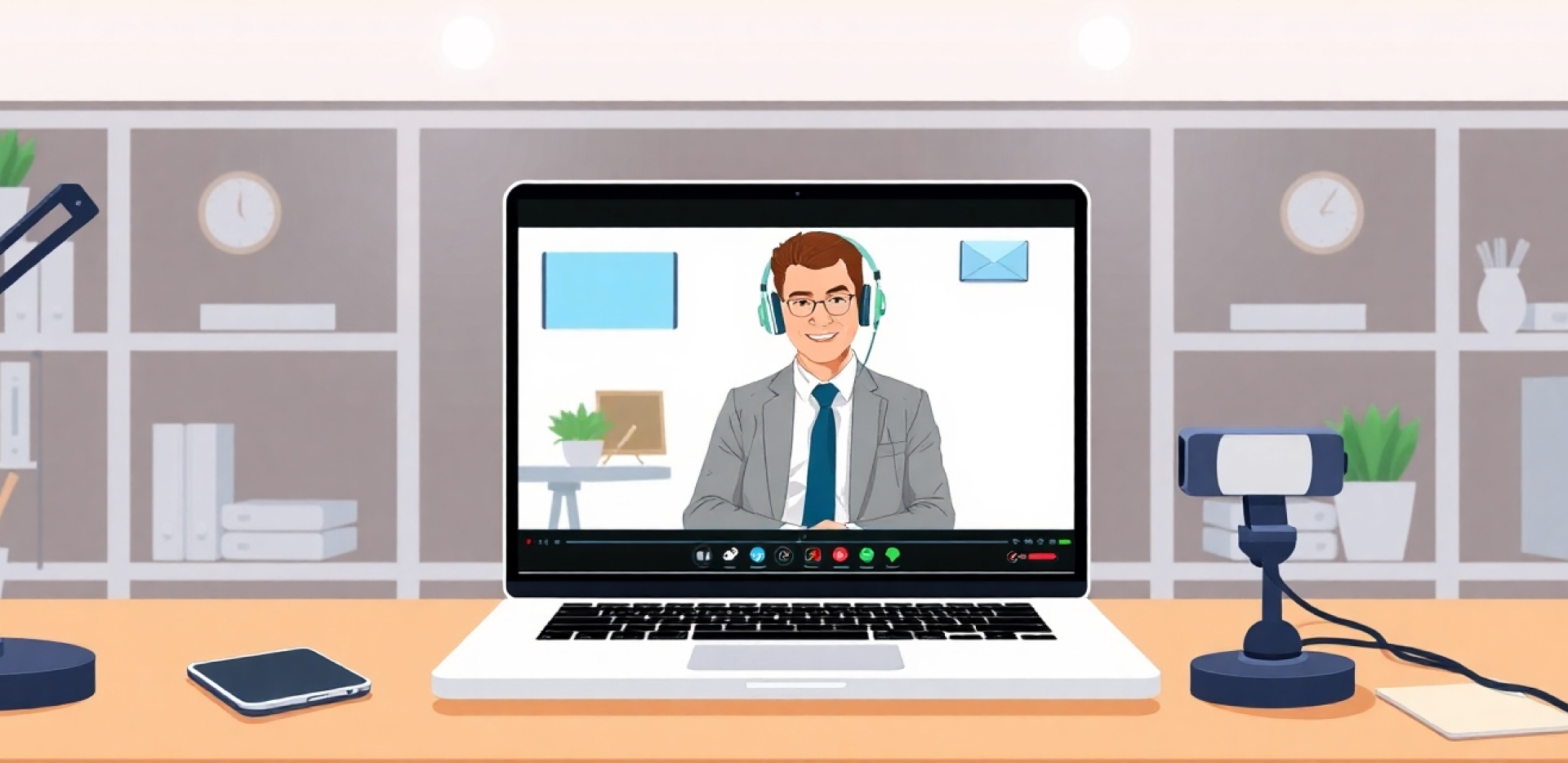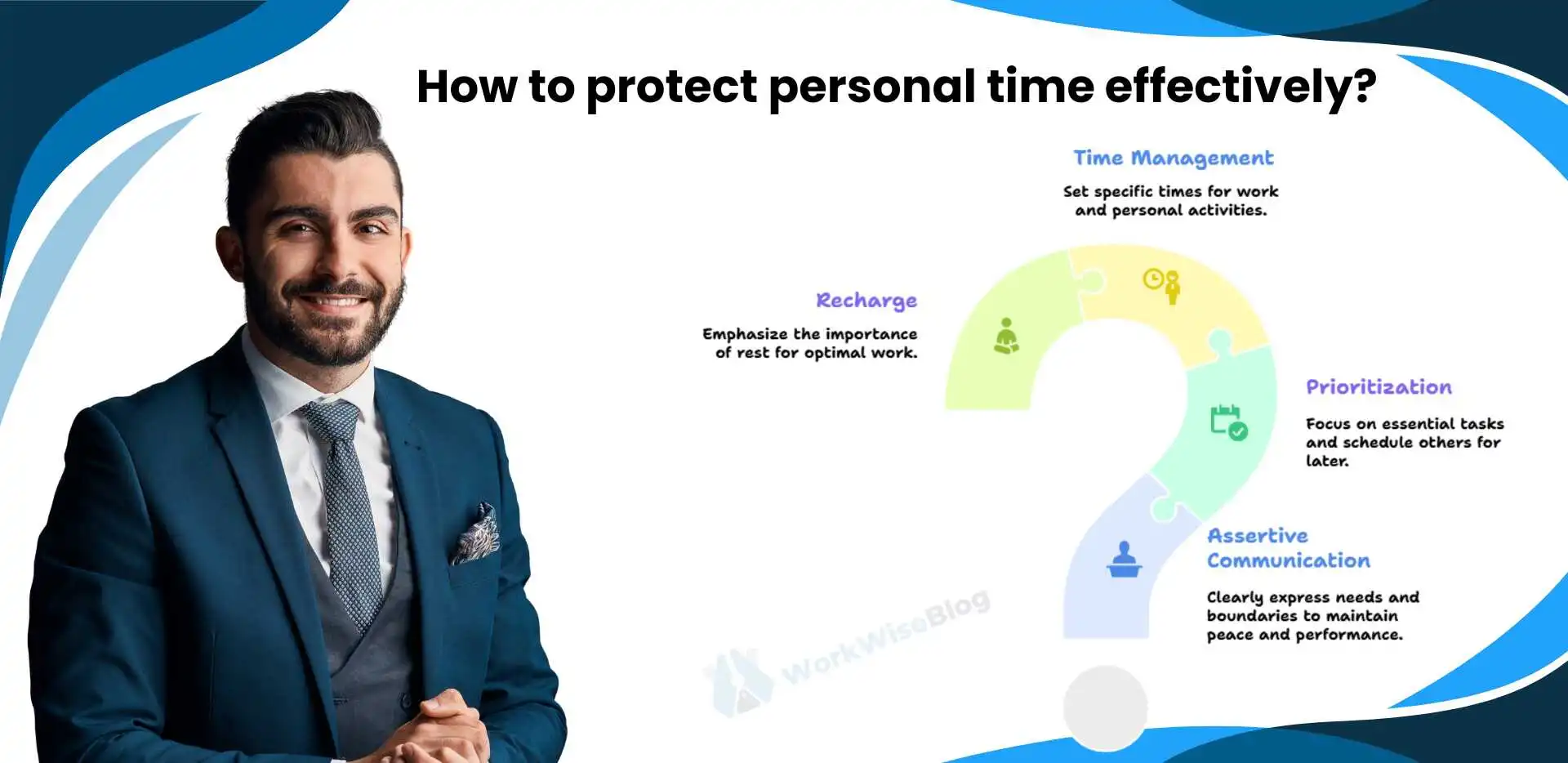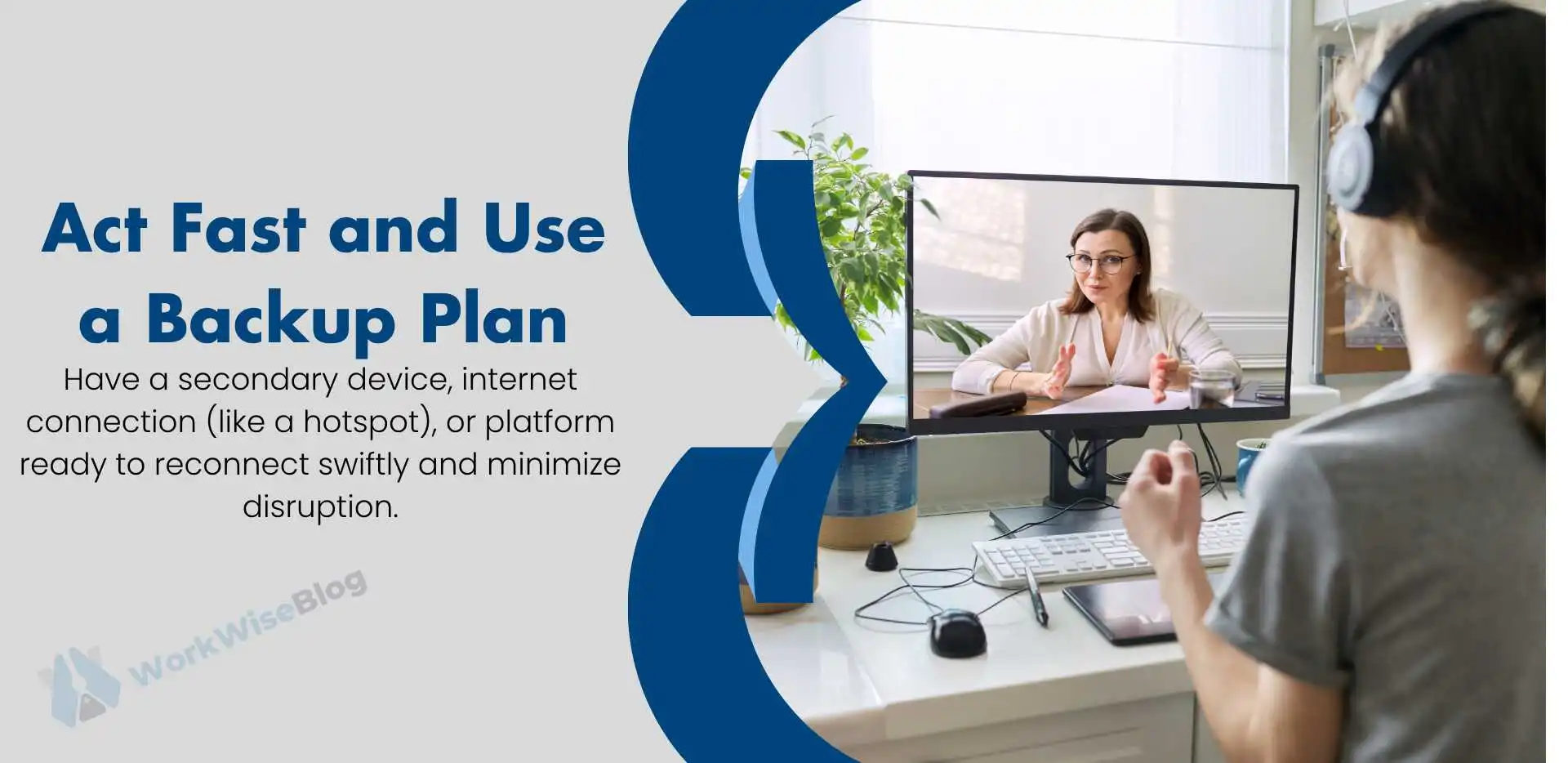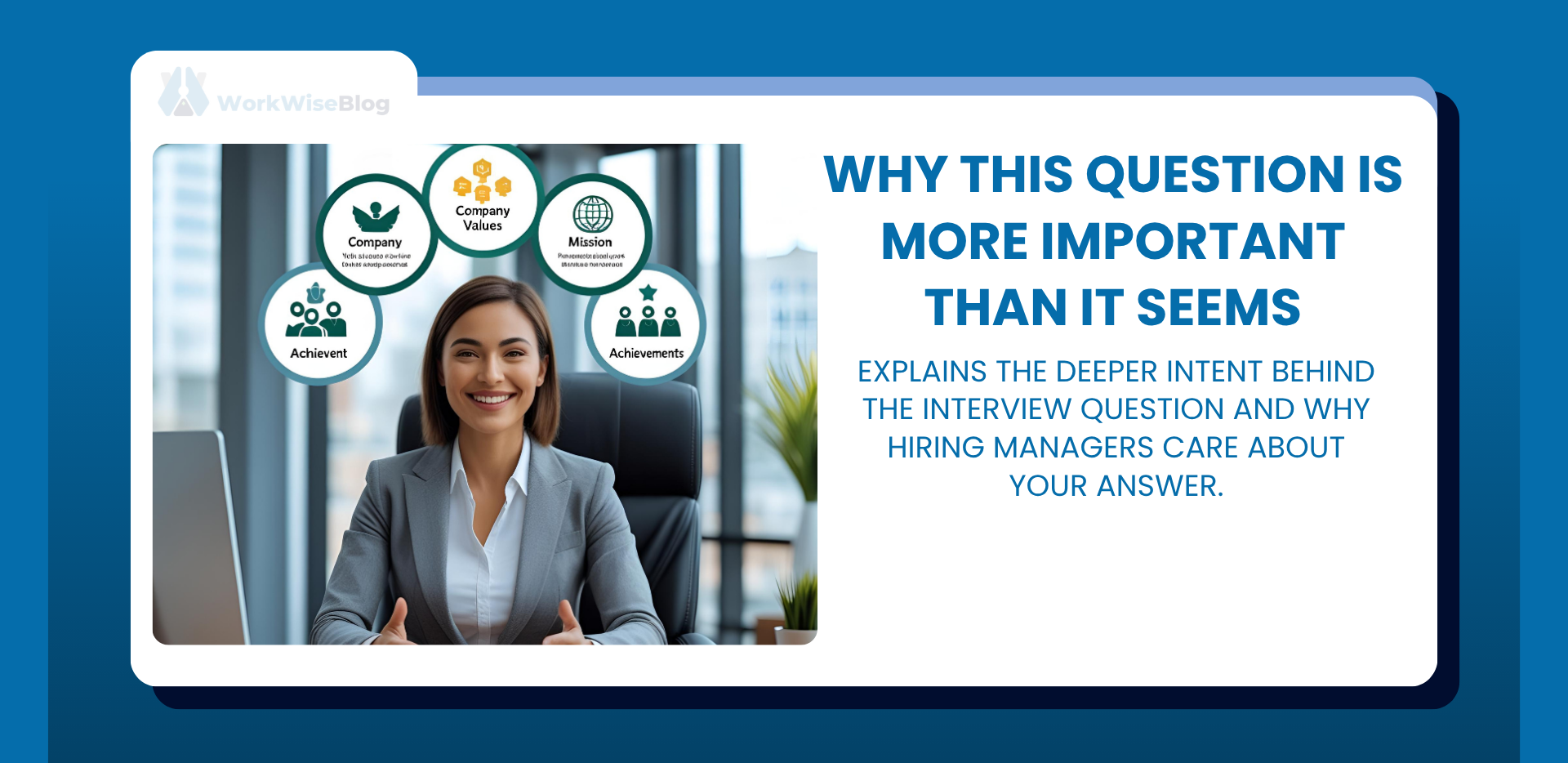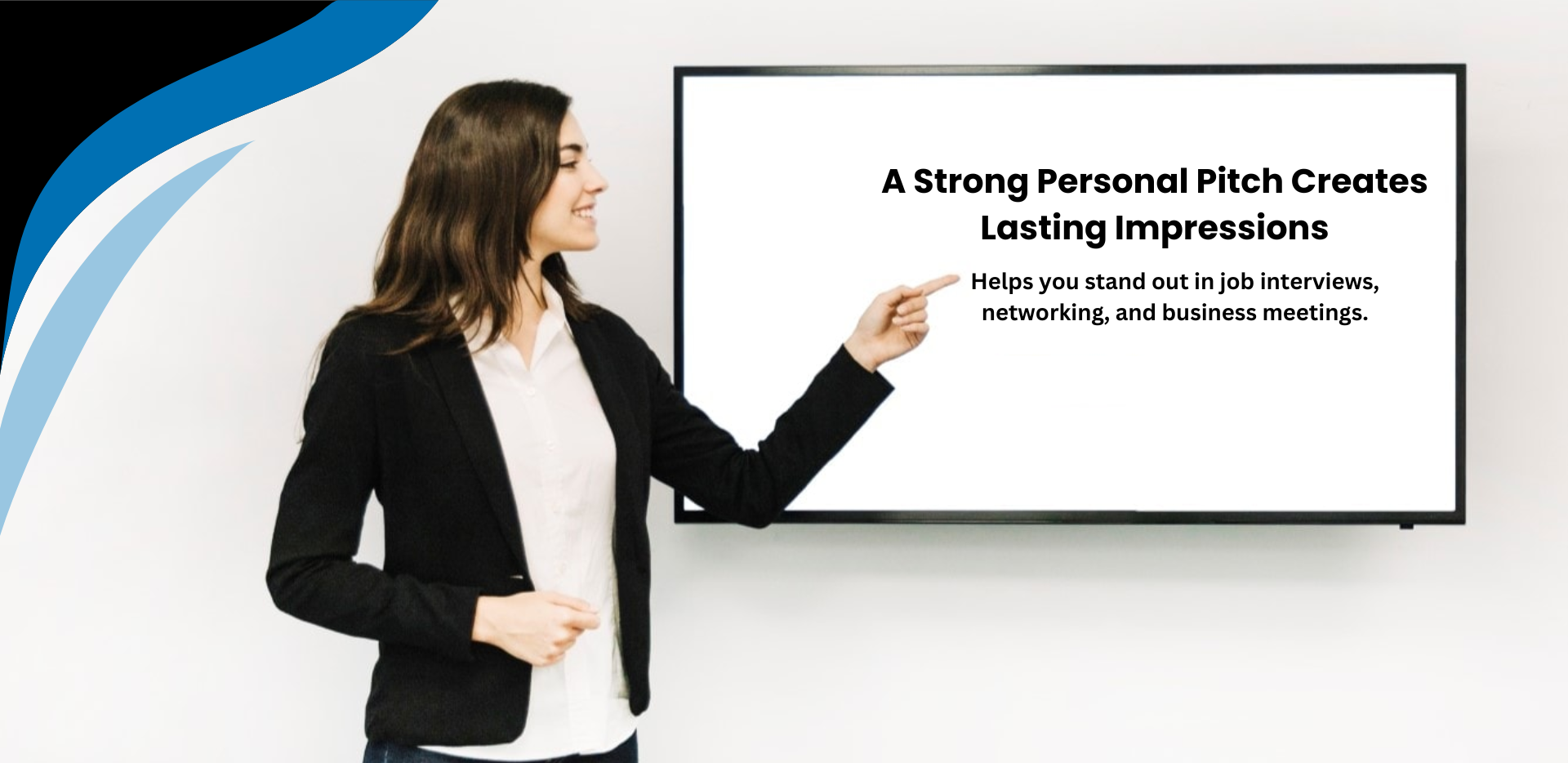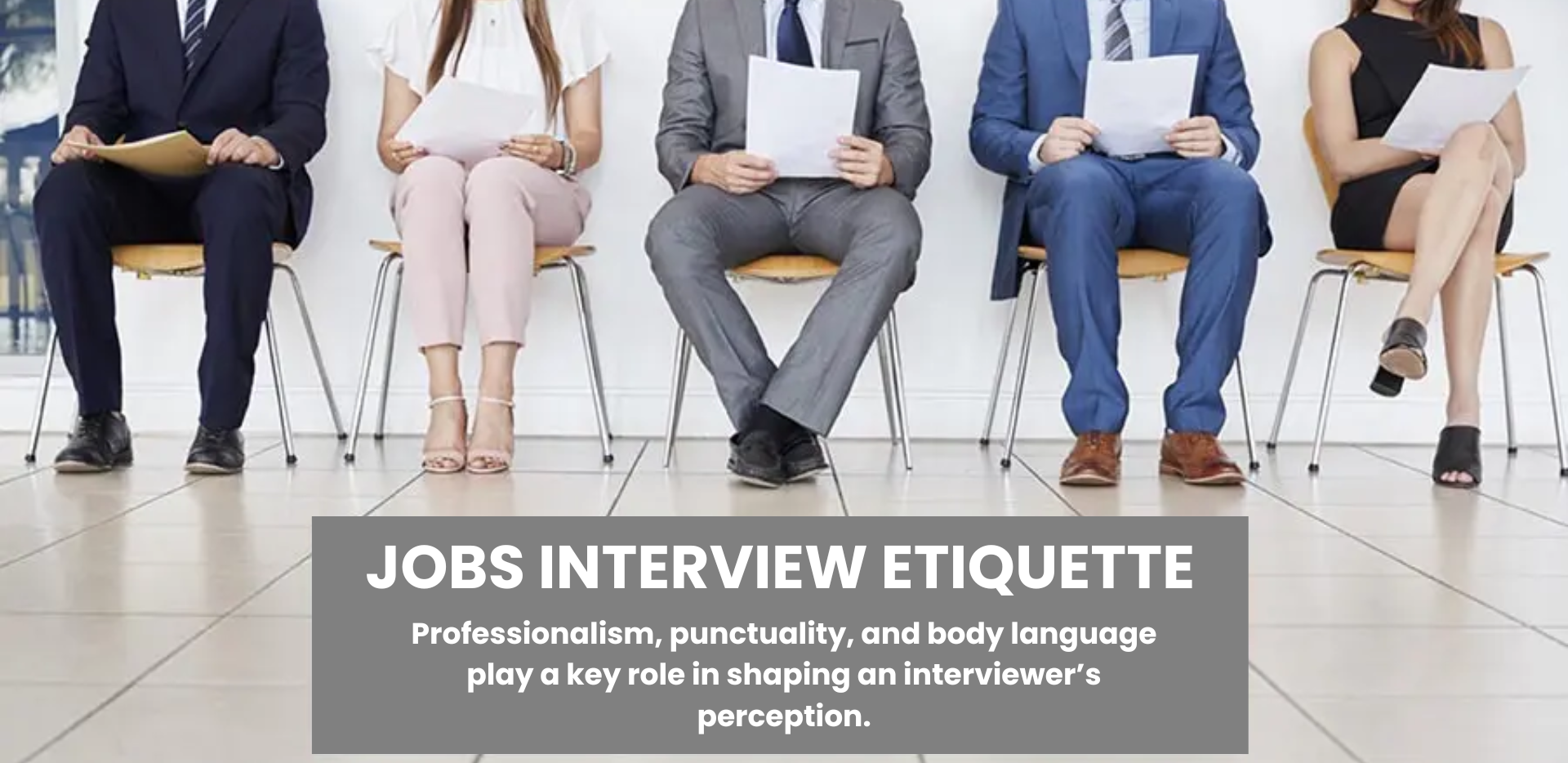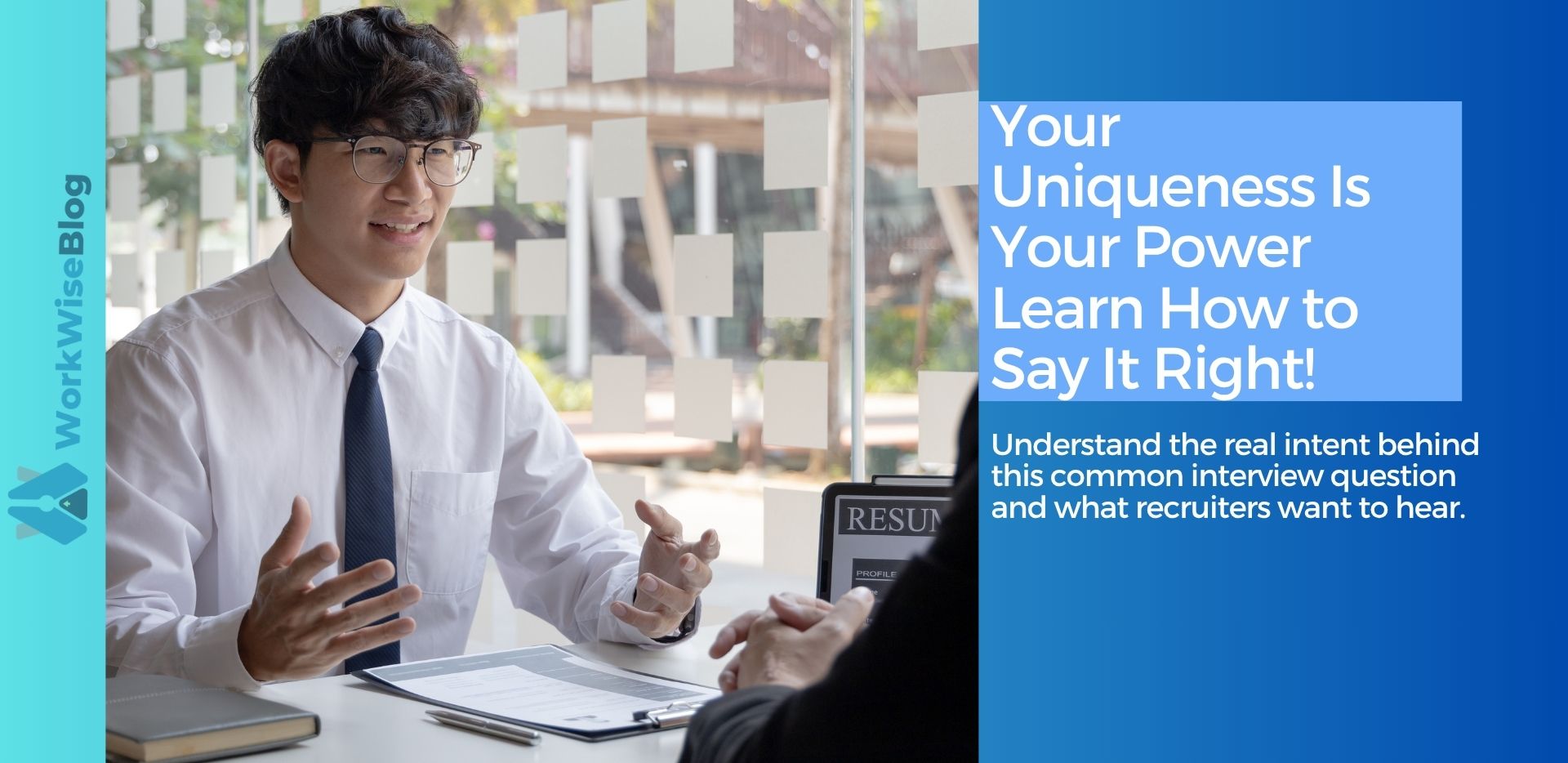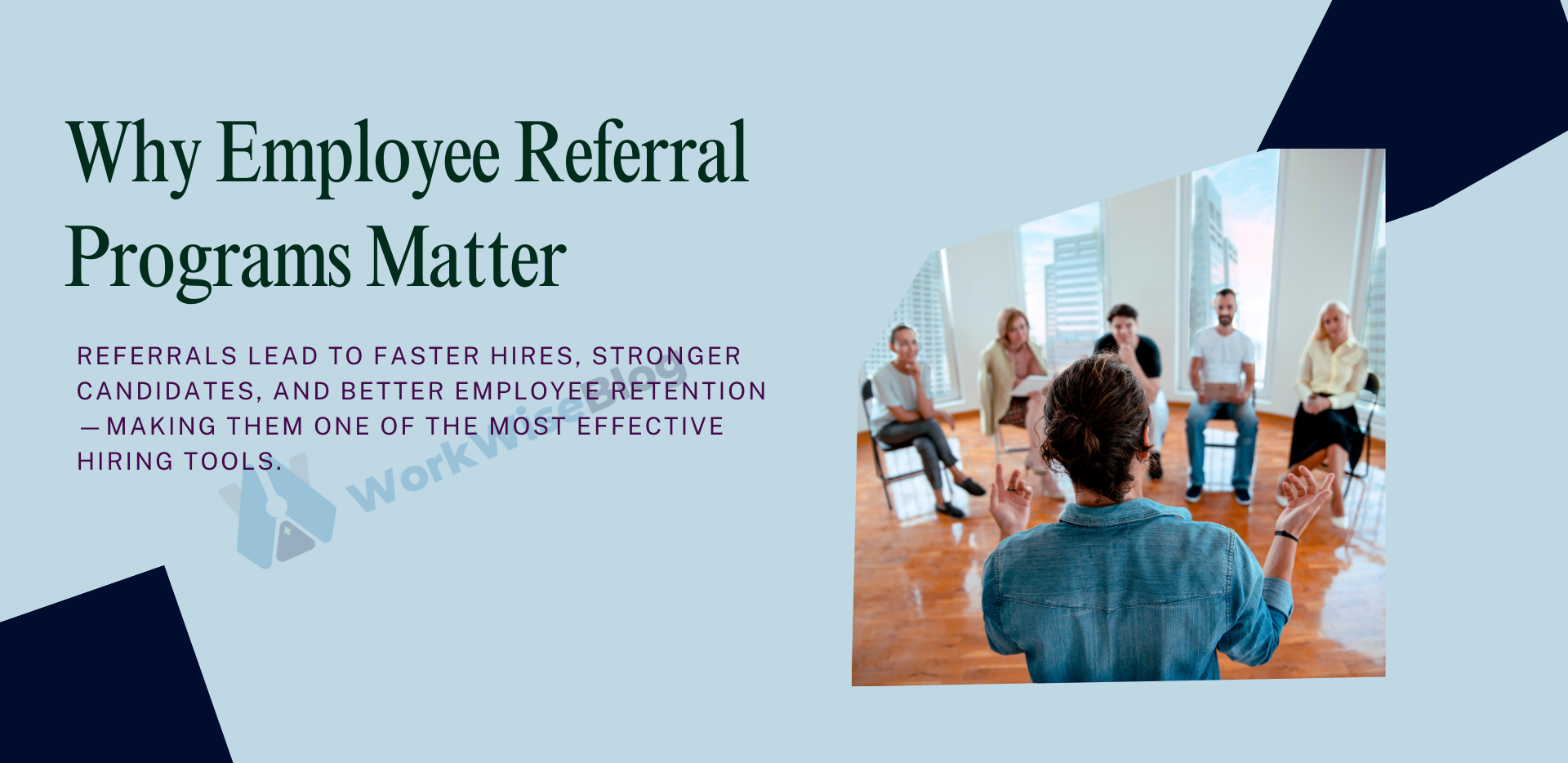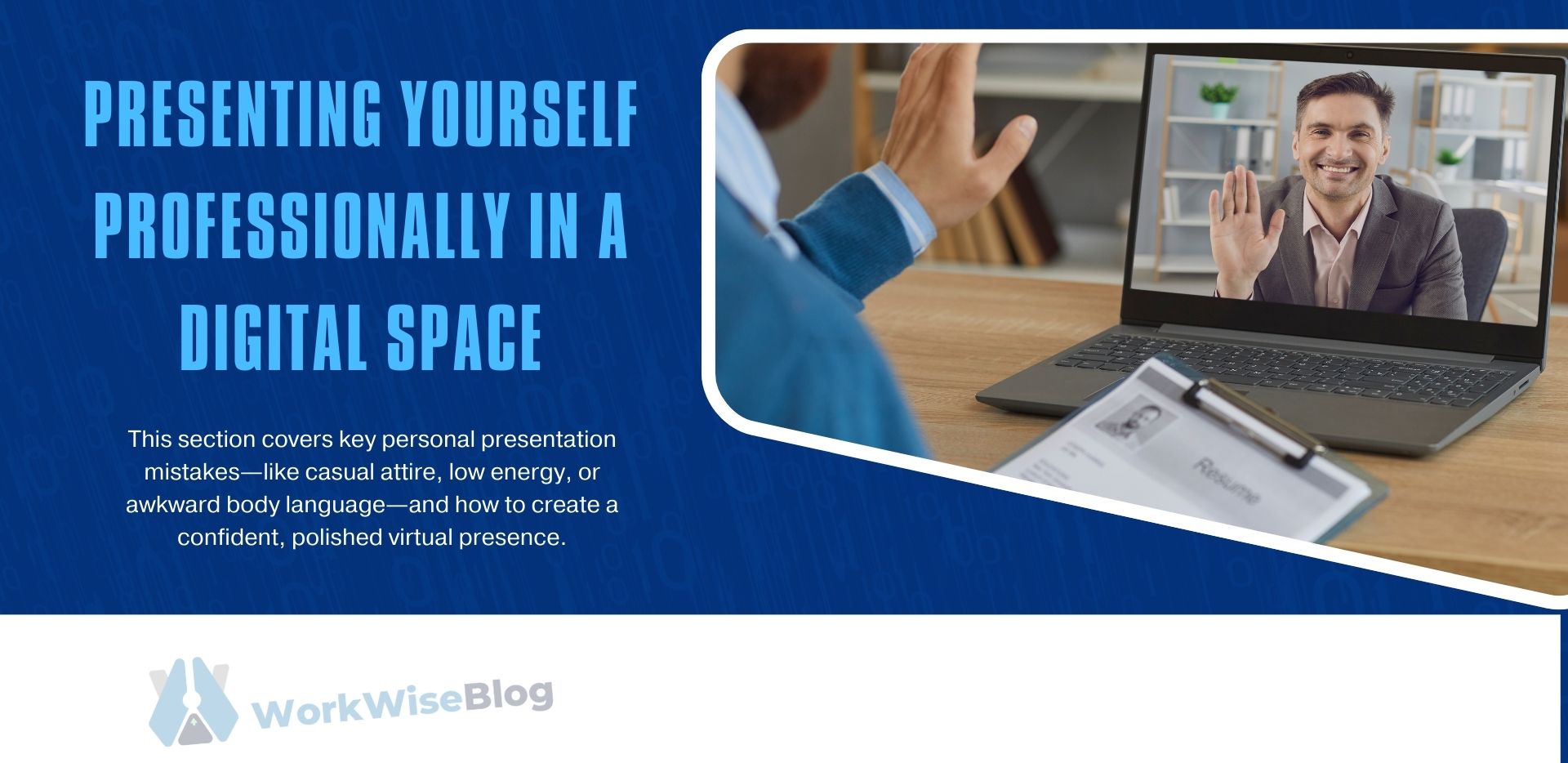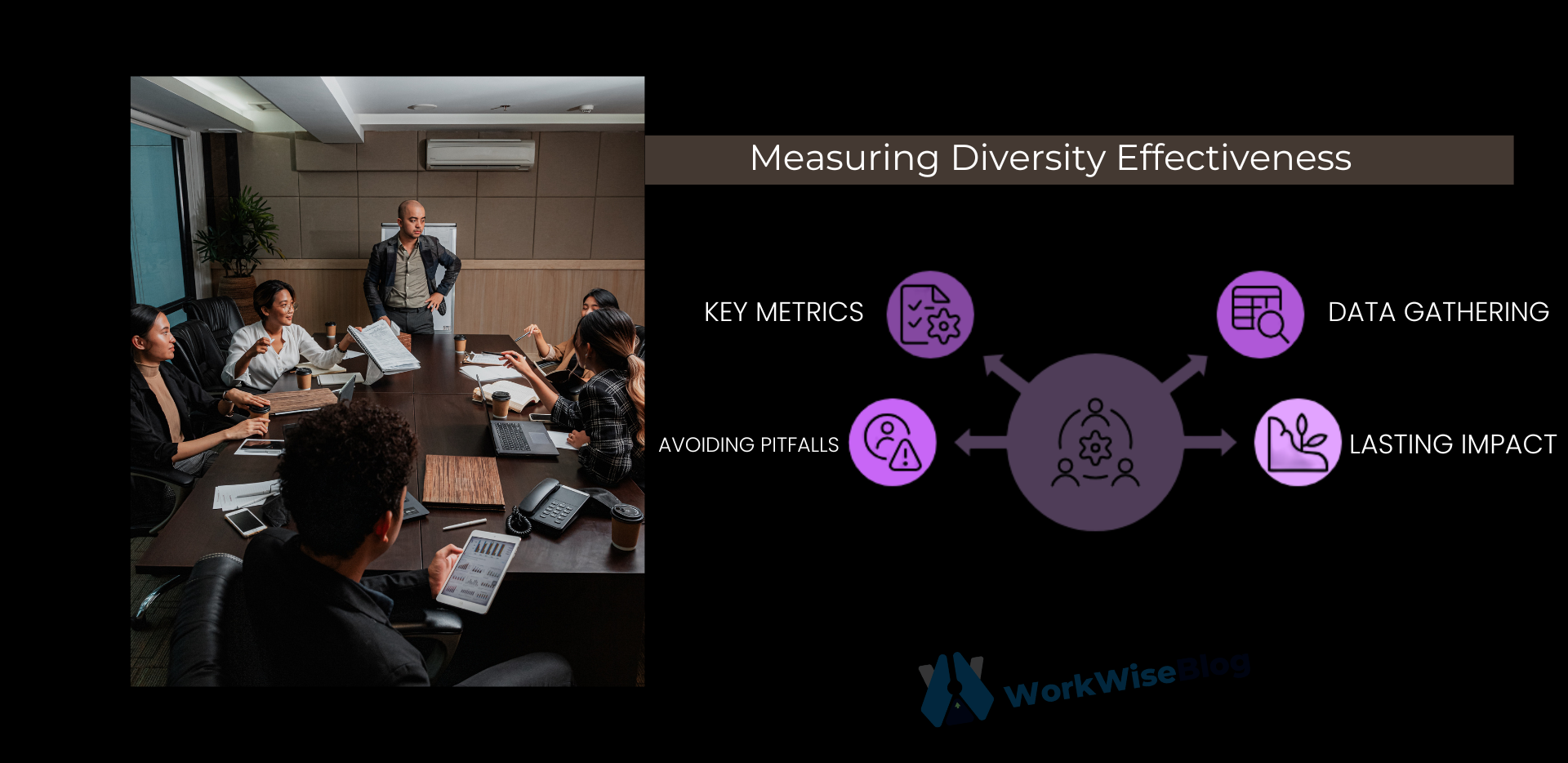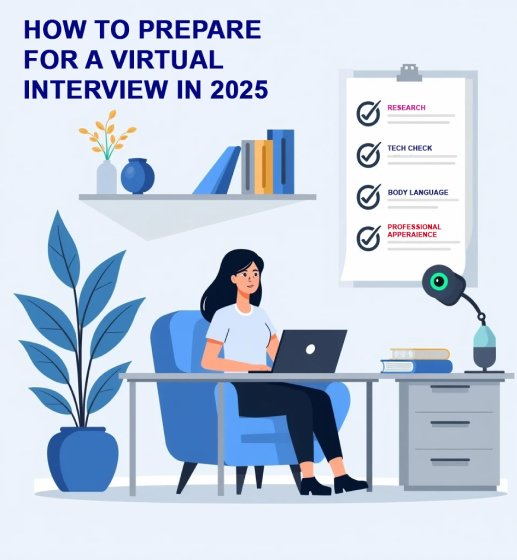
Why Virtual Interviews Are Popular in 2025
Just because of:
- Cost-saving: Companies save money on travel and hotel prices.
- Time-saving: Interviews happen faster and with fewer scheduling problems.
- Global access: Employers can meet people from anywhere in the world.

How to Prepare for a Virtual Interview

1. Learn About the Company and Job
Start by researching about the company. and see the description of the job what do they want from you? Here’s how you can:
-
- Check their website and read about what they do.
- states, industry, mission, vision, etc
- Look for their latest news or successes.
- Read the job description carefully and think about how your skills fit the role.
Example: let’s say the job is for a marketing role, you can say how your experience in building social media campaigns fits their needs.

2. Set Up Your Interview Space
Your settings matter in a virtual interview. Make sure your area is quiet, clean, and free from distractions.
What You Need in Your Setup:
-
-
- Good lighting: Make sure your face is well-lit.
- Neat background: Choose a normal or tidy area behind you.
- Camera position: Keep the camera at eye level.
- Strong internet: Use a reliable link to avoid interruptions.
-
Pro Tip: Test your setup with a friend or family member to see how it looks and sounds.
3. Test Your Technology
Make sure everything works before the interview.
-
-
- Check your microphone, speakers, and camera.
- Practice using the interview tool (e.g., Zoom or Google Meet).
- Keep a backup device, like a phone or computer, ready in case something goes wrong
-
A survey by TechRepublic showed that 43% of people had tech problems during virtual interviews.
4. Dress Properly
Dressing properly shows you take the interview seriously.
-
-
- Wear simple, business clothes like a shirt or blazer.
- Avoid busy designs or bright colors.
- Look neat and well-groomed.
-
Tip: A plain blue or white shirt works well for most jobs.
5. Practice Common Interview Questions
Practicing answers will help you feel more secure. Here are some common questions you should prepare for:
-
-
- “Can you tell me about yourself?”
- “Why do you want this job?”
- “What are your strengths and weaknesses?”
- “Can you share a time when you solved a problem?”
-
Tip: Use the STAR method (Situation, Task, Action, Result) to organize your comments clearly.
6. Pay Attention to Body Language
Even in a virtual interview, your body language counts.
-
- Make eye contact: Look at the camera, not the screen.
- Smile naturally: It makes you look friendly and open.
- Sit up straight: A good stance shows confidence.
Studies show that 55% of conversation is non-verbal, like gestures and expressions. Which is comes from the 7-38-55 rule: 7% of communication is through words, 38% through tone of voice, and 55% through body language
7. Ask the Interviewer Questions
Asking questions shows you’re interested and prepared.
Here are some examples:
- “What does a typical day look like in this role?”
- “How would you describe the team I’ll be working with?”
- “What are the next steps after this interview?”
8. Be Ready for Technical Issues
Even with the best preparation, things can go wrong with technology. To be safe, always have a backup plan in case something doesn’t work.
-
- Have a backup device: If your computer fails, a phone or tablet can come in handy.
- Check your internet connection: If possible, use a wired connection to avoid Wi-Fi disruptions.
- Stay calm if problems happen: If there’s a technical issue, explain the problem politely and ask to reschedule if necessary.
9. Prepare Your Documents and Notes
Having your resume, job description, and any notes handy will help you stay organized during the interview.
-
- Keep your resume and job description open: This way, you can refer to them if needed.
- Make a cheat sheet: Jot down key points you want to mention, like your strengths or any important achievements.
- Have questions ready: Write down questions to ask the interviewer about the company or role.
10. Send a Thank-You Email
After the interview, follow up with a polite thank-you text.
- Thank the person for their time.
- Mention something specific you talked about in the interview.
- Reaffirm your interest in the job.
Example Email:
“Dear [Interviewer’s Name],
Thank you for the chance to interview for the [Position Name] role. I really liked learning more about [specific topic discussed]. I’m excited about the chance to contribute to your team.
Best regards,
[Your Name]”
Things to Avoid During a Virtual Interview
To make a good impact, avoid these mistakes:
- Joining late: Always log in 5 minutes early.
- Dressing casually: Wear business clothes, even if you’re at home.
- Interrupting the interviewer: Wait for them to finish speaking.
- Background noise: Make sure it’s quiet where you are.
These tools can make your planning easier:
- Grammarly: Helps you write mistake-free emails.
- Zoom/Google Meet: Common tools for interviews.
- Calendly: Makes scheduling interviews easy.
- Canva: Great for making any visuals or documents you might need.
Some Extra Tips
What Experts Say
- Lila Davidson, a top HR expert, says: “Preparation and presentation are key. Candidates who practice and study will always stand out.”
- Forbes also notes: “Virtual interviews test both your job skills and your ability to adapt to new technology.”
- Work Wise notes: “Boost Efficiency with Batch Processing: Work Smarter, Not Harder”
Conclusion
Now upgrading yourself for virtual interviews can not be as hard as rock. You just need to follow the simple steps that we explain above like researching the company and job, checking before using your gadgets, Dressing professionally and sitting in a quiet area, and showing confidence through your words and body language. by following these tips, you’ll make a strong impact and increase your chances of getting the job. Good luck with your interview!
FAQs
How do I prepare for a virtual interview?
To prepare for a virtual interview, first test your technology to ensure your camera, microphone, and internet connection are working properly. Dress professionally and choose a quiet, well-lit space with a simple background. Make sure your resume and any important notes are ready to
refer to during the interview.
What should I do for a virtual interview?
For a successful virtual interview, test your equipment beforehand, choose a professional and quiet setting, and dress appropriately. Eliminate distractions by turning off your phone and other notifications. Stay focused, maintain good eye contact by looking at the camera, and make sure your environment is tidy and well-lit.
How is HR being impacted by technology?
In a short Zoom interview, use the mute button when you’re not speaking to avoid background noise. Make sure you’re in a bright, quiet room with a professional background. Turn off any notifications, and stay focused on the conversation. Be ready to introduce yourself quickly and answer questions concisely.
What are the key preparations for a virtual job interview?
To prepare for a virtual job interview, test your technology, including the camera and microphone. Familiarize yourself with the interview software and make sure your location is quiet and professional. Dress as if it were an in-person interview, have your resume ready, and prepare a few questions to ask the interviewer. Be sure to join the interview on time.

